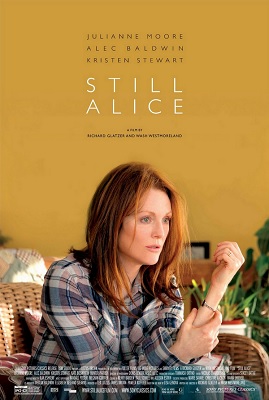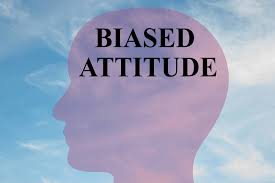2014, USA, 101 min.
Still Alice tracks a family’s changing dynamics after a life-shattering diagnosis and serves as a showcase for Julianne Moore, whose beautiful, freshly Oscar-winning work allows us to see her family’s struggles as part of the title character’s long, losing battle with herself. The movie proceeds at an uncomfortably languid pace until the end, when we’re shaken.
Fifty-year-old Alice Howland (Moore) is the apotheosis of having-it-all, the kind of woman who looks immaculate whether she’s presenting research at a convention, jogging through Columbia University’s campus or cooking a massive Christmas dinner in a kitchen out of Architectural Digest. Family follows suit, from her ruggedly handsome scientist husband, John (Alec Baldwin), to two of her adult children, who look like they’ve been carved out of ivory. Her youngest daughter, Lydia (Kristen Stewart), doesn’t fit that mold in looks, attire or occupation. She’s a struggling actress who has eschewed college, a fact her mother—a renowned linguistics expert—can recite even as her brain deteriorates.
Alice’s struggle with early-onset Alzheimer’s reveals someone fighting to maintain what becomes more of a façade with each passing day. (Alice’s neurologist observes that she has become quite resourceful at masking the symptoms.) Working from Lisa Genova’s novel of the same name (2007), director-writer Richard Glatzer and co-director Wash Westmoreland ease us into Alice’s reality bit by bit, which gives the proceedings an empathetic resonance. There’s no grandstanding here. Moore’s restraint—whether it’s her resigned annoyance that her moisturizer is in the refrigerator or fumbling for words that evaporate as she speaks—comes from a place of emotional turmoil. Alice’s losses are inevitable, yet still painful. When Alice and John swap giggly, kissy memories at their summer home, she remarks that things may be different next year. A little later, after forgetting where the bathroom is, she stands helplessly in her own urine.
Life cannot stay the same. As Alice’s condition worsens, she and Lydia grow closer while the rest of the family, involved in their glittering careers and unblemished lives, shies away. Lydia’s increased interest feels shoehorned, but it’s not an unwelcome development. Stewart, who holds her own with Moore, lowers Lydia’s feral frustration from the earlier scenes, and we come to understand the factors that led Lydia to head in a different direction: the career-obsessed father, the cold sister (Kate Bosworth). Lydia finds the person behind the do-it-all icon who is and always will be her mother, the one who possibly used achievement to mask her own sadness.
Still Alice has no glamour or happy ending or miracle cure, just people succeeding and failing to deal with a major change scribbled into the Upper West Side storybook. Alice’s story will continue, just not in the way everyone expected. There’s a reason why the movie’s big speech is at the halfway point. Part of life, regardless of age, is sticking around after the applause ends.



